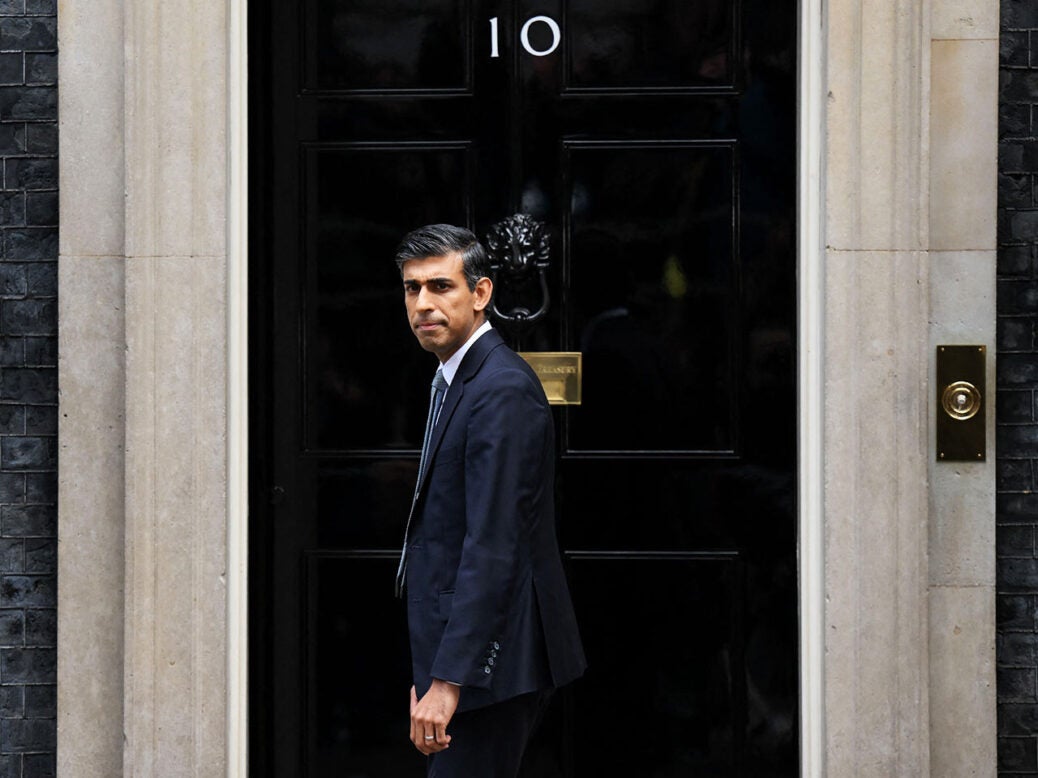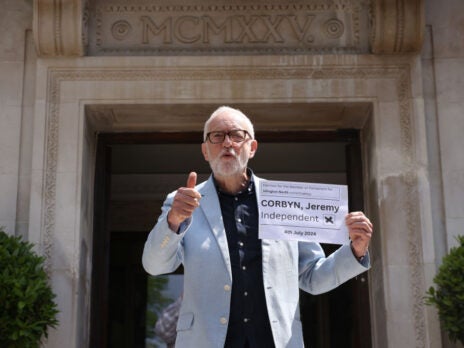
A prime minister’s first 100 days should be plain sailing when it comes to public opinion. Voters want to give them a chance. Tony Blair enjoyed the approval of some 74 per cent of Britons in August 1997. Gordon Brown, despite terrorist incidents and a litany of domestic troubles, was seen favourably by half the country in October 2007. Boris Johnson, by contrast, having become a more polarising figure during the Brexit campaigns, was far less popular: just 39 per cent approved of him, while 42 per cent did not. This gave him one of the worst early records for a prime minister in recent history.
Rishi Sunak, now 100 days into his own reign, has calmed the markets and improved his party’s polling position. The problem is that he’s turned a 25 percentage-point gap with Labour under Liz Truss into… a 20-point gap. Were an election held today, Labour would win a landslide victory.
This muted honeymoon for the new PM, who was the UK’s most popular politician as chancellor during the Covid crisis, doesn’t bode well for the Tories; indeed, Sunak’s own brand is in decline.
At the start of November public opinion towards the Prime Minister was already in negative territory, albeit not by much. Thirty three per cent viewed Sunak favourably, while 37 per cent viewed him unfavourably. By the end of January 45 per cent disapproved and only 28 per cent approved.
A net rating of minus 18, just 100 days into the job, compares poorly with former PMs. Indeed, it is the worst performance of any in recent history. Blair had a net approval rating of plus 60, Brown was on plus 26, David Cameron on plus 27 and Theresa May on plus 19. A smaller proportion of voters approves of Sunak than approved of Johnson when he was withdrawing the whip from Tory MPs at the height of the Brexit wars in 2019.
Leadership ratings shouldn’t be examined in isolation or treated as immutable. Brown, after all, started well but his premiership soon soured after he abandoned a plan to hold a snap election in 2007. Johnson started poorly but went on to achieve the Tories’ biggest election victory since 1987.
As things stand, Sunak’s Tories are ten points behind Labour on the economy and 20 points behind on voting intention. Sunak himself trails Keir Starmer for personal likeability and, crucially, 66 per cent of Britons believe the next election is a “change” election (as Ipsos UK found). The last time these three metrics favoured the main opposition party was between 1992 and 1997, which ended with a Labour landslide of 418 seats.
[See also: Britain Predicts]


